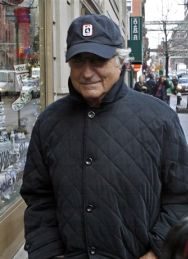
Claiming that the ACLU is the nation’s leader in the "critical" areas of "national security and reproductive freedom," Monclair, a 23-year veteran ACLU employee, asked for end-of-the-year donations from the group’s long-standing supporters to cover the lost contributions.
Also, the Elie Wiesel Foundation for Humanity lost more than $15 million. Formed to combat anti-Semitism, its leaders reported on December 24 that because of having invested with Madoff, "substantially all of the Foundation’s assets" had disappeared. Its release nevertheless insisted that it "remains committed to carrying on the lifelong work of our founder." Wiesel, who is now 80 years old and who launched the group 20 years ago, has also been personally victimized by Madoff’s investment fraud.
Other Madoff victims include Yeshiva University, whose chief financial officer expects its losses will total $14.5 million. The Robert I. Lappin Foundation, a financier of trips to Israel for Jewish youngsters, will have to raise needed funds from elsewhere to make up for its losses. Duped investors include actors Kevin Bacon and Kyra Sedgwick.
Madoff’s fraud reached overseas as well. In Austria, the Bank Medici expects that its clients who invested with Madoff will lose more than $2 billion. The bank’s primary owner, Vienna resident Sonja Kohn, founded it in 1994 after having lived in New York City for several years. In Connecticut, the Westport National Bank has been drawn into the scandal because it acted as a custodian for funds invested with Madoff.
Madoff worked his scheme mainly on Jewish groups and individuals in Florida and New York. They now find themselves a great deal less wealthy if not completely wiped out. The Madoff operation, run mainly through his Bernard L. Madoff Investment Securities firm, is expected to cost once-eager clients approximately $50 billion in lost assets.
Photo: AP Images



